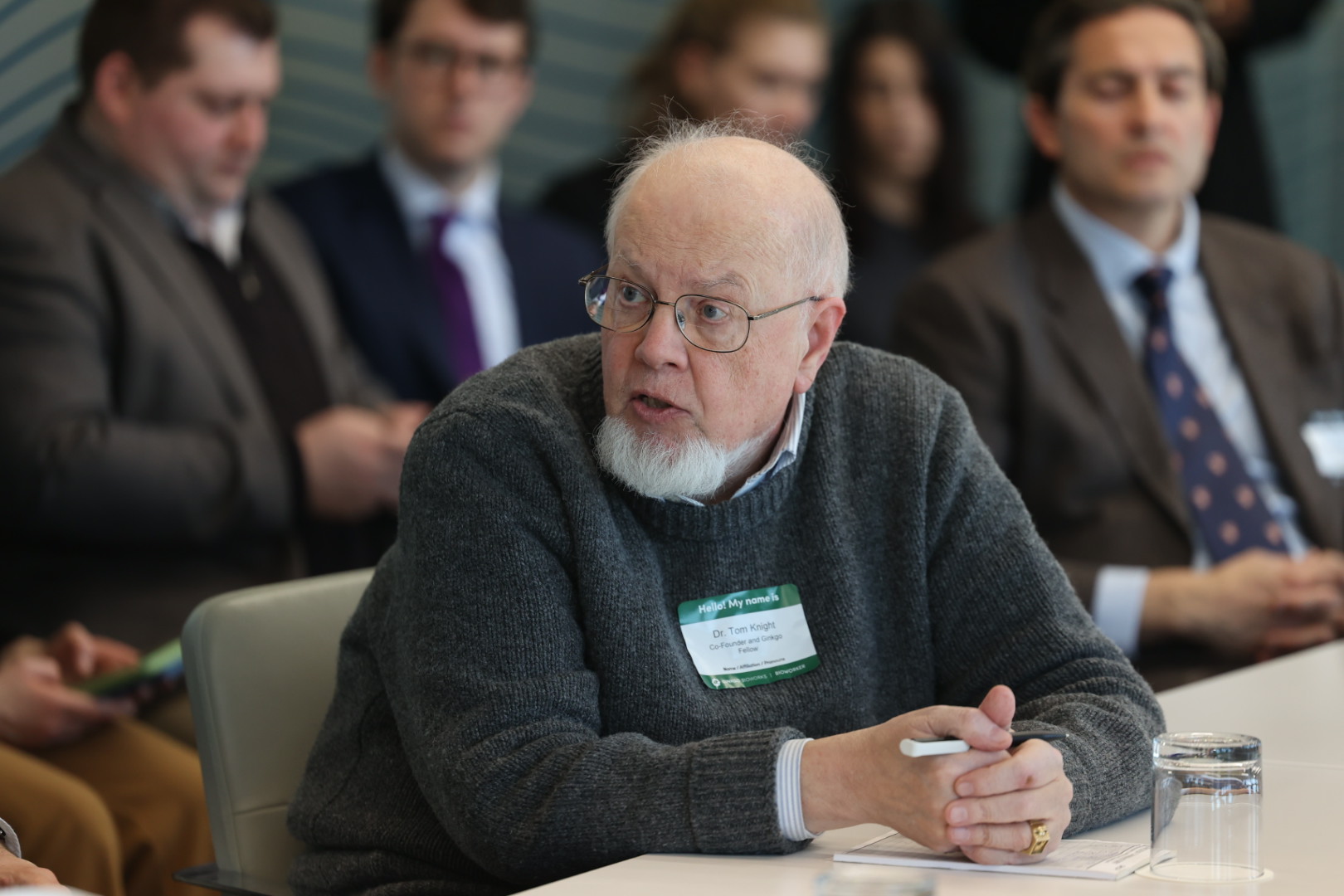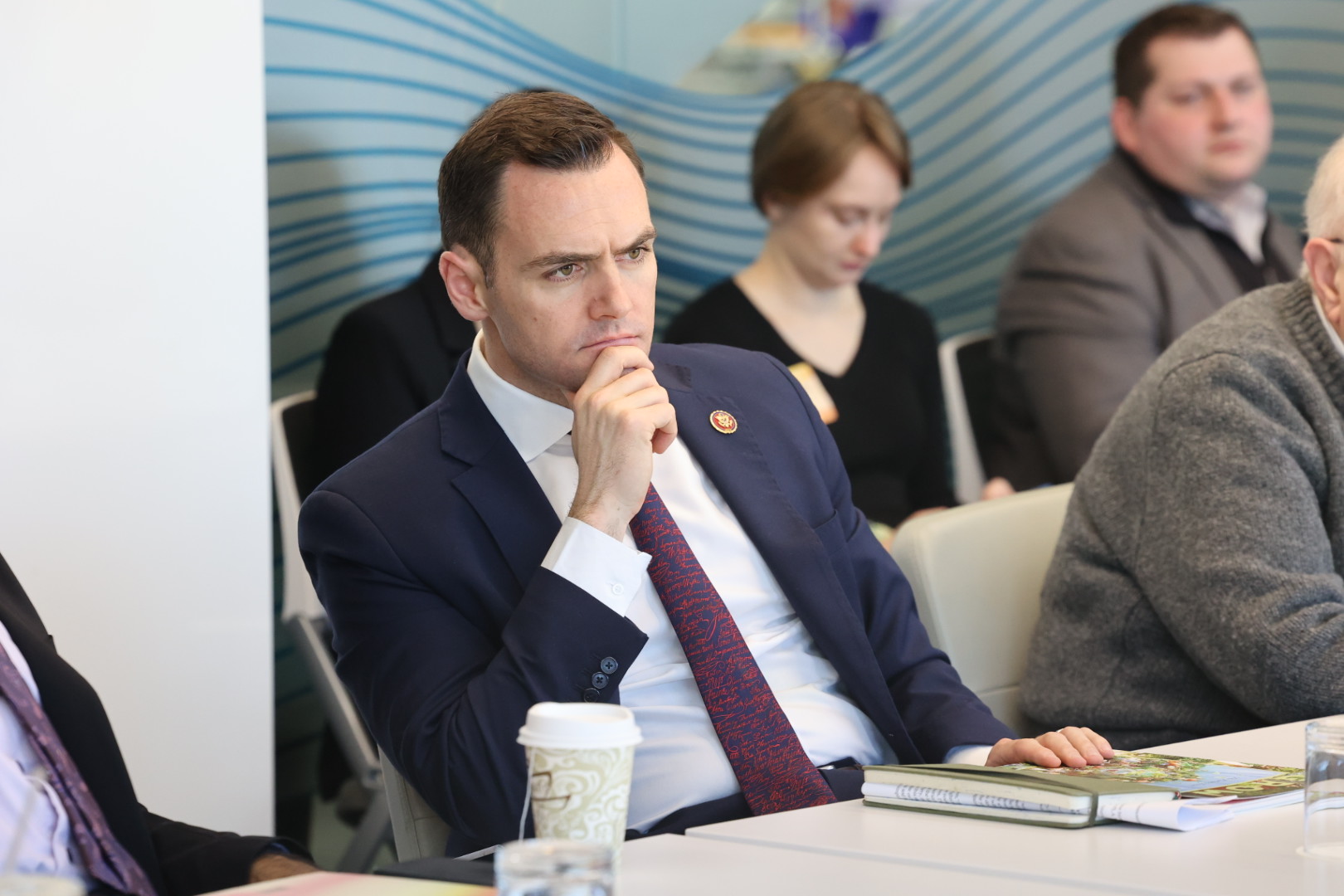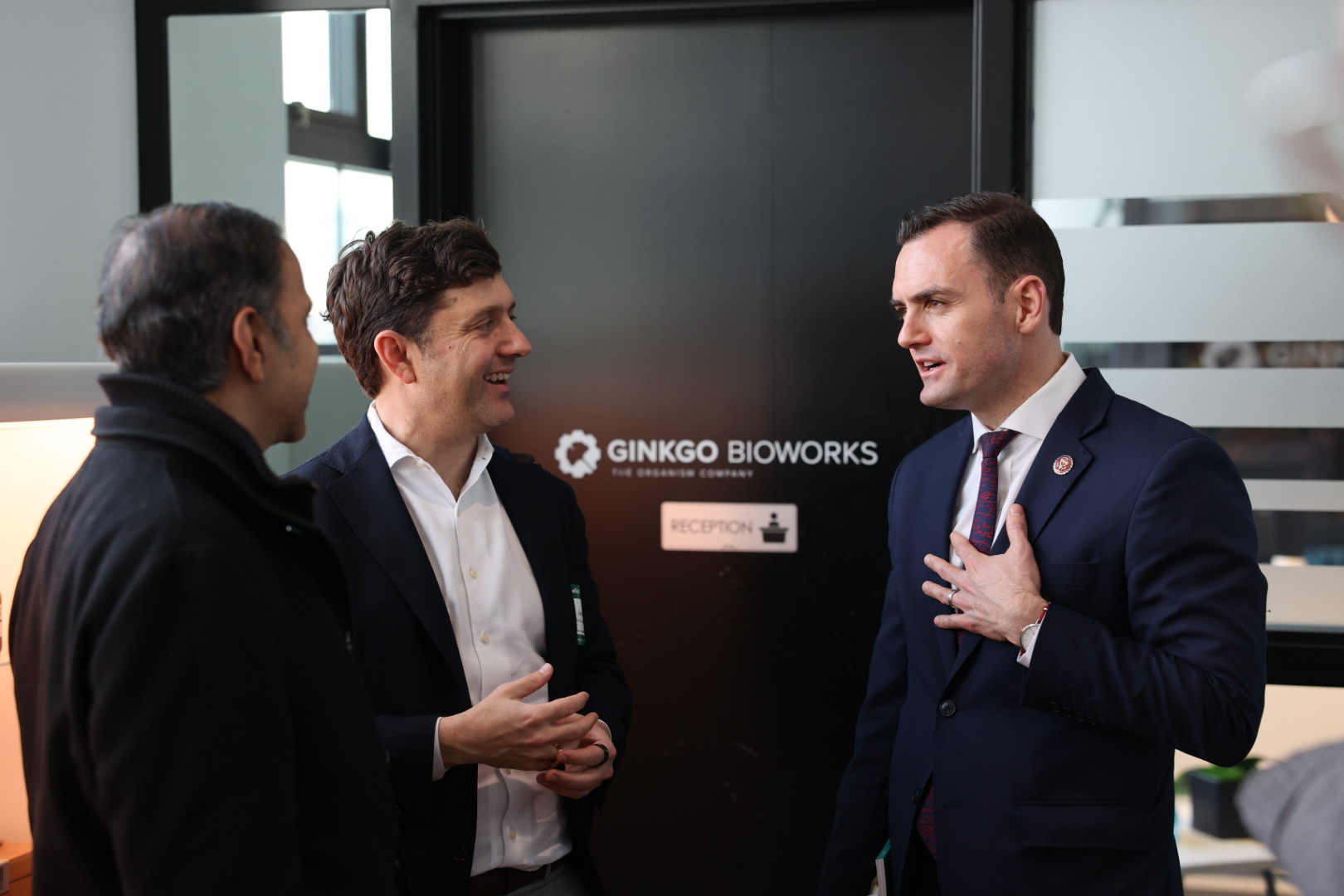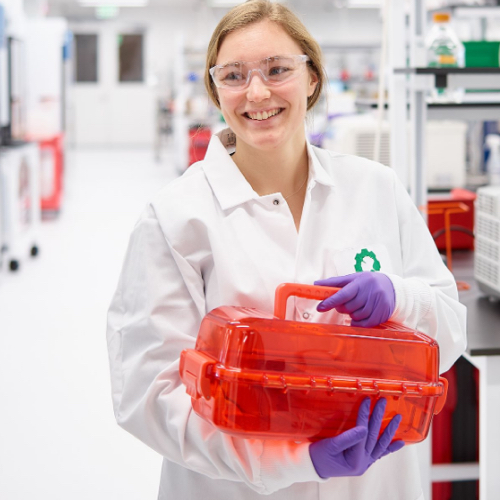- Members of Congress visited Ginkgo’s Boston Seaport headquarters to discuss strategies for bolstering U.S. ability to compete in AI applications for biotechnology, as well as unlocking innovations in pharmaceuticals, agriculture, and across industries
- Ginkgo’s Foundry generates essential data assets and tools to allow companies to more reliably develop biotech products
- Members also previewed Ginkgo’s new Biofab1 facility, under construction in the Seaport, which is expected to significantly increase Ginkgo’s R&D-for-service capacities when fully operational
- Ginkgo’s facilities in Boston encompass 500,000+ sq. ft. of existing and planned capacity. Similar to the role played by chip fabs and cloud data centers in enabling the cybereconomy and advances in artificial intelligence, these facilities can serve as a critical enabler of a vibrant and competitive bioeconomy
We built the Foundry – and are building Biofab1 – to create more opportunities for our partners to innovate in health, agriculture, food, and across industries. Essentially, our facilities are factories that produce the biological data that powers the AI-enabled bioeconomy, and it was an honor to share them with members of the Committee.
We had the pleasure of hosting members of Congress focused on strengthening the U.S. bioeconomy in service of national and economic security yesterday. We provided a tour of our expansive facility and discussed our unique position as a provider of services that facilitate applications of biotechnology in companies of all sizes across the economy.
Familiar with the risks associated with dependencies on international chip fabrication plants, our visitors from the United States House Select Committee on the Strategic Competition between the United States and the Chinese Communist Party toured Ginkgo’s 300,000+ sq. ft. facility in action, previewed Ginkgo’s new under-construction 250,000+ sq. ft. facility, Biofab1, and discussed implications for economic competition in the multi-trillion dollar bioeconomy.
Similar to how chip manufacturers and cloud computing companies have provided the economies of scale and specialization required to enable the digital economy, our Foundry provides companies with the flexibility and scale required to more readily develop and commercialize bio-based products. Specifically, Ginkgo leverages advanced automation and massive biological datasets to drive down R&D costs, while also aiming to improve the speed of development and probability of success of customer programs. Today, we provide R&D services for partners including Pfizer, Merck, and Novo Nordisk in biopharma; Bayer, Syngenta, and Corteva in agriculture; Sumitomo and Solvay in specialty chemicals as well as many others in the food, materials, and personal care sectors.
The Foundry and Biofab1 have taken on additional national security relevance in light of new generative AI capabilities.
Generative AI stands to accelerate biotechnology R&D, offering pathways to breakthroughs in biopharma and across the economy. In that context, biological data is of renewed and particular importance. Biofab1 is expected to begin operations early next year and aims to significantly increase Ginkgo’s capacity to generate biological data.
“Boston is one of the epicenters for biotech innovation in America. Given that this is a critical technology with national security, economic, and ethical implications, we came here to talk to the experts and figure out the right strategy, so that we, and not the Chinese Communist Party, can dominate this technology and set ethical rules of the road.”
Congressman Mike Gallagher (R-WI), Chairman of the United States House Select Committee
Last summer, Ginkgo announced a strategic partnership with Google Cloud aimed at leveraging Ginkgo’s Foundry and large biological data assets to develop new, state-of-the-art LLMs. These models are meant to help Ginkgo’s customers accelerate innovation and discovery in fields as diverse as drug discovery, agriculture, industrial manufacturing, and biosecurity. Ginkgo leadership shared with the visiting Committee our view that, like in other AI applications, leadership in the bioeconomy will necessitate leading in the development of these AI models.



